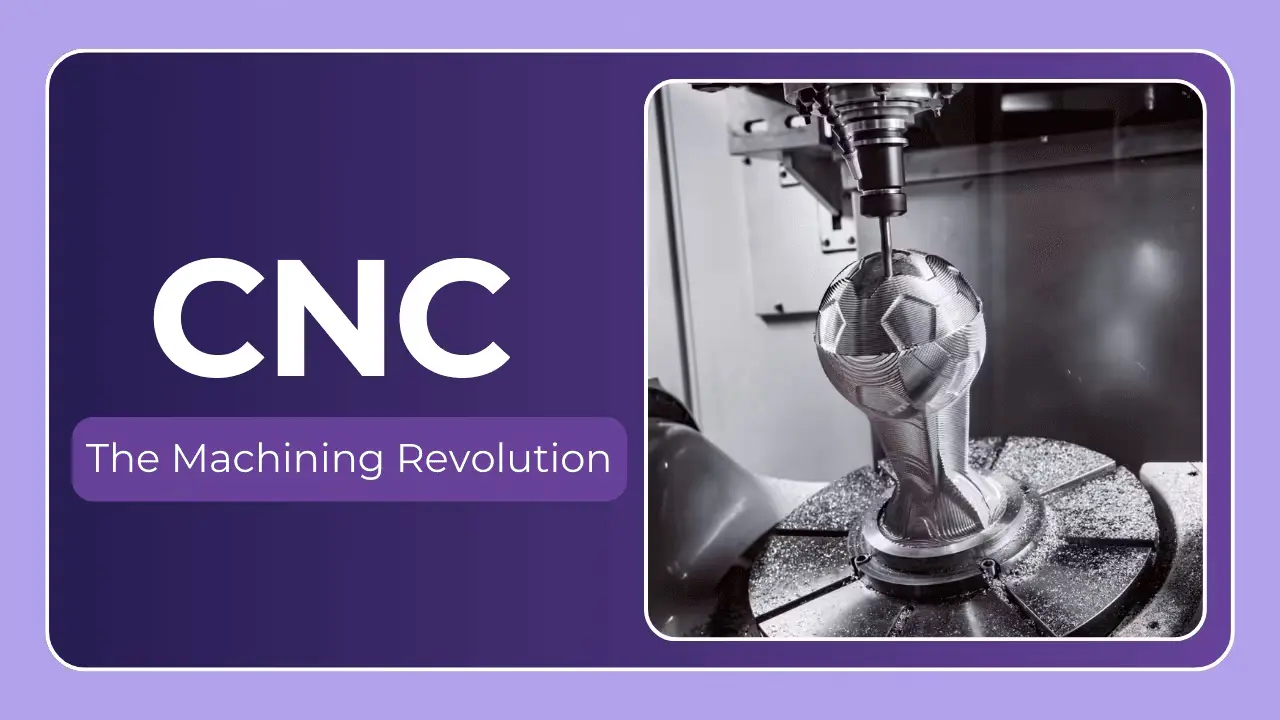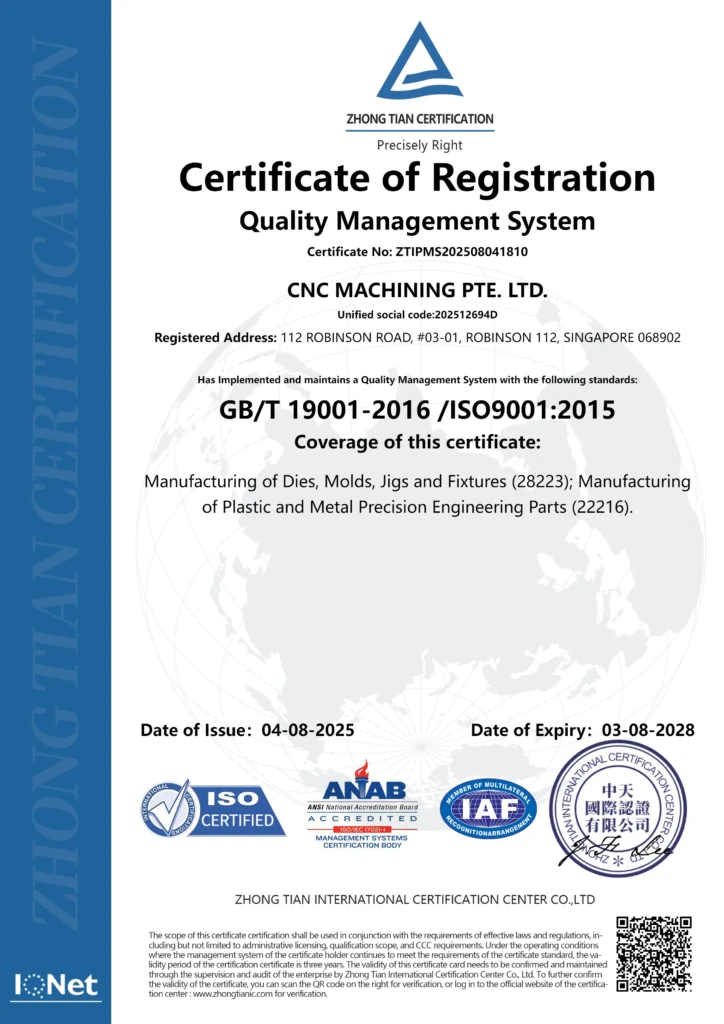Navigating the UK’s Precision Engineering Landscape: A Guide to CNC Machining Experts
The UK manufacturing sector, renowned for its history of innovation and precision, increasingly relies on Computer Numerical Control (CNC) machining. From aerospace components to intricate medical devices, the demand for highly accurate, repeatable, and efficient manufacturing solutions is soaring. But navigating the world of CNC machining can be complex. This article delves into the critical aspects of finding the right CNC machining partner in the UK, exploring the technologies, materials, processes, and crucial considerations for success. We’ll even touch on how companies like CNC MACHINING PTE. LTD. (based in Singapore, but increasingly relevant to global supply chains) can play a role in augmenting UK capabilities.
What is CNC Machining and Why is it Vital for UK Businesses?
CNC machining is a subtractive manufacturing process where pre-programmed computer software dictates the movement of factory tools to precisely cut pieces of material. Unlike traditional machining, which relies heavily on manual operation, CNC machining offers unparalleled precision, repeatability, and efficiency.
The advantages for UK businesses are numerous:
- Precision & Accuracy: Dimensional tolerances in the micron range are achievable, critical for industries like aerospace and medical.
- Complexity: CNC machines can create intricate geometries and complex designs that would be impossible or prohibitively expensive with traditional methods.
- Speed & Efficiency: Automated processes dramatically reduce production times, enabling faster turnaround and increased output.
- Material Versatility: CNC machining works with a vast range of materials, from metals and plastics to composites and wood.
- Cost-Effectiveness: While initial setup costs can be higher, the increased efficiency and reduced waste often lead to lower per-part costs, especially for larger production runs.
The Core CNC Machining Processes Available in the UK
The UK boasts a robust network of CNC machining providers offering a variety of specialized services. Understanding these processes is key to selecting the right partner:
| Process | Description | Best Suited For | Typical Tolerances |
|---|---|---|---|
| Milling | Utilizes rotating cutting tools to remove material from a workpiece. Can perform a wide range of operations like slotting, pocketing, and profiling. | Complex shapes, prototypes, production parts, contours | ±0.025mm – ±0.1mm |
| Turning | The workpiece rotates while a stationary cutting tool removes material. Ideal for creating cylindrical parts. | Shafts, pegs, fasteners, cylindrical components | ±0.013mm – ±0.05mm |
| Drilling | Creates precise holes in materials. | Fastening points, fluid passages, mounting holes | ±0.025mm – ±0.1mm |
| EDM (Electrical Discharge Machining) | Uses electrical sparks to erode material. Excellent for hard materials and intricate shapes. | Molds, dies, aerospace components with complex internal features | ±0.002mm – ±0.01mm |
| Wire EDM | A specialized EDM process using a thin wire as the electrode. | Cutting intricate profiles, creating punches, and dies | ±0.002mm – ±0.01mm |
| Grinding | Uses abrasive wheels to achieve extremely smooth surfaces and tight tolerances. | Finishing operations, hardened materials, precision components | ±0.002mm – ±0.005mm |
| 5-Axis Machining | Incorporates five different axes of movement allowing for simultaneous machining of multiple sides of a part. | Complex geometries, undercuts, aerodynamic surfaces | ±0.025mm – ±0.05mm (dependent on machine and material) |
Materials Commonly Machined in the UK
The UK’s CNC machining sector handles a vast array of materials. Popular choices include:
- Aluminum Alloys: Lightweight, strong, and corrosion-resistant – widely used in aerospace, automotive, and general engineering.
- Stainless Steel: Excellent corrosion resistance and strength – suitable for medical devices, food processing equipment, and marine applications.
- Titanium: Exceptional strength-to-weight ratio and corrosion resistance – crucial for aerospace, medical implants, and high-performance parts.
- Engineering Plastics: Delrin, Nylon, Acrylic, and PEEK offer varied properties like wear resistance, chemical resistance, and electrical insulation.
- Tool Steels: Used for tooling, dies, and molds requiring high hardness and wear resistance.
- Copper Alloys: Excellent thermal and electrical conductivity – used in electronics and heat exchangers.
The Rising Importance of 5-Axis CNC Machining
As designs become more complex, 5-axis CNC machining is gaining prominence. This technology allows for machining complex parts in a single setup, reducing potential errors, improving accuracy, and streamlining the production process. Companies like CNC MACHINING PTE. LTD. specialize in this area, offering advanced capabilities that can complement UK manufacturing. 5-axis machining is particularly vital for:
- Aerospace: Complex turbine blades and structural components.
- Medical: Intricate implants and surgical instruments.
- Automotive: High-performance engine parts and aerodynamic components.
- Mold & Die Making: Creating complex mold cavities and die shapes.
Sourcing Globally – The Role of Companies like CNC MACHINING PTE. LTD.
While the UK has a strong domestic CNC machining base, global sourcing is becoming increasingly common. Companies like CNC MACHINING PTE. LTD., based in Singapore, offer compelling advantages:
- Competitive Pricing: Singapore often presents cost-effective manufacturing solutions, particularly for higher volume runs.
- Advanced Technology: As highlighted on their website, CNC MACHINING PTE. LTD. boasts state-of-the-art five-axis CNC machining equipment and comprehensive post-processing capabilities.
- Quick Turnaround: They specialize in rapid prototyping and fast production cycles.
- One-Stop Solution: Offering post-processing services like polishing, plating, and finishing simplifies the supply chain.
- Material Flexibility: Ability to handle a wide spectrum of materials catering to diverse requirements.
However, it’s crucial to address potential challenges:
- Lead Times: Shipping and logistics can add to overall lead times.
- Communication: Clear and consistent communication is vital for successful global partnerships.
- Quality Control: Rigorous quality control processes are essential to ensure consistent part quality.
Key Considerations When Choosing a CNC Machining Partner in the UK (or Globally)
Selecting the right partner is paramount. Consider these factors:
- Capabilities: Do they offer the specific processes and materials required for your project?
- Capacity: Can they handle your production volume and meet your deadlines?
- Quality Control: What quality control procedures do they have in place? (ISO 9001 certification is a good indicator)
- Experience: Do they have experience working with your industry and your specific application?
- Communication: Are they responsive and able to communicate effectively?
- Cost: Obtain quotes from multiple suppliers and compare pricing carefully. (Remember, the cheapest option isn’t always the best!)
- DFA/DFM Expertise: Do they offer Design for Manufacturability/Assembly advice to optimize your design for cost and efficiency?
Conclusion: Shaping the Future of Manufacturing Through Precision
The UK’s manufacturing landscape is undergoing a dynamic evolution, driven by the demand for increased precision, efficiency, and innovation. CNC machining is at the heart of this transformation, enabling businesses to create complex, high-quality parts with speed and cost-effectiveness. Whether you choose a domestic UK provider or explore global options like CNC MACHINING PTE. LTD., carefully evaluating your needs and partnering with a reputable, capable supplier is critical.
The key to success lies in understanding the available technologies, materials, and processes, coupled with a strategic approach to sourcing and quality control. By prioritizing these elements, UK businesses can unlock the full potential of CNC machining and remain competitive in the global marketplace. Embracing advanced capabilities, such as 5-axis machining, and remaining open to collaborating with international experts will be essential for navigating the future of precision engineering.




